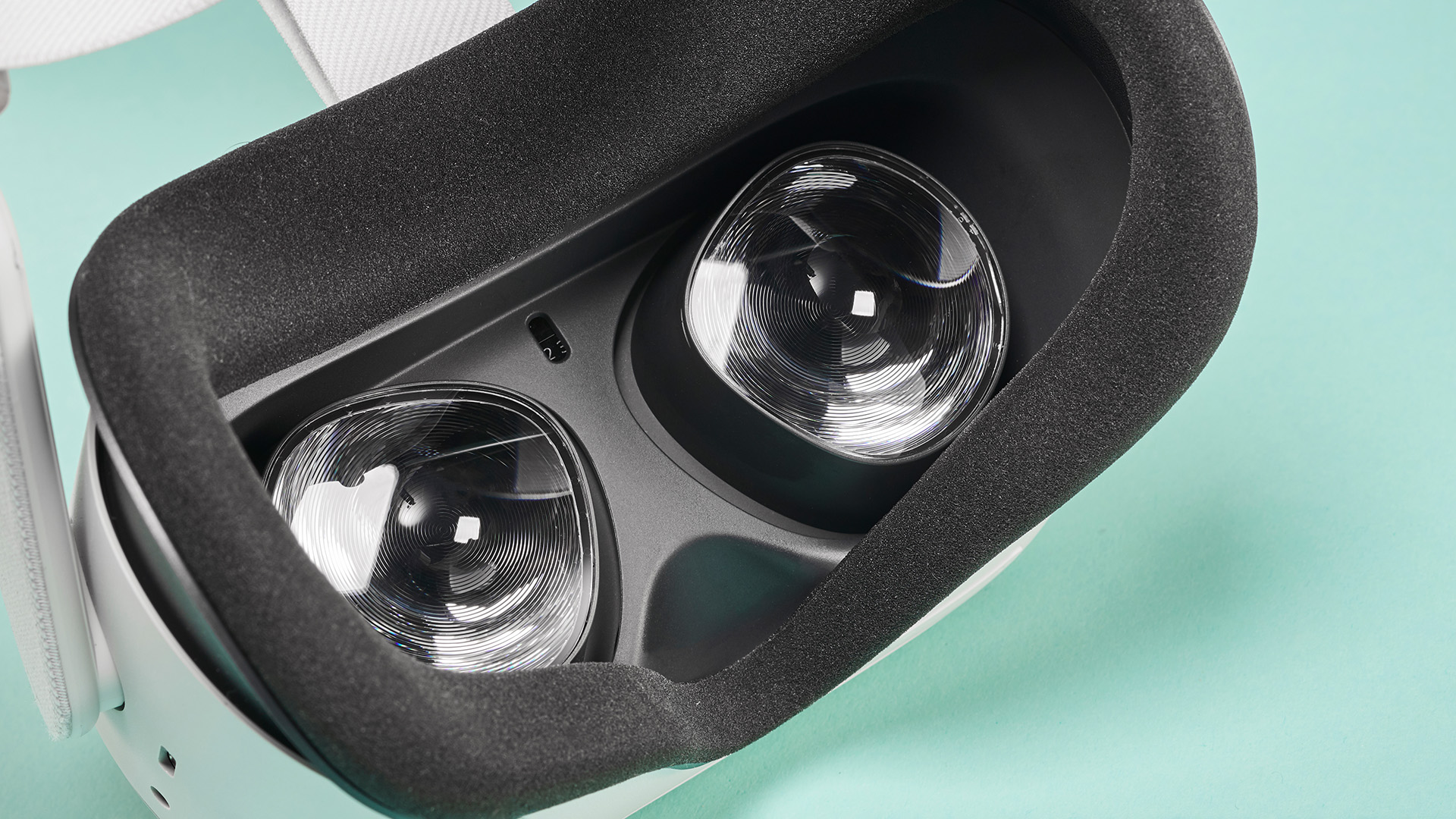Meta may be plotting a new budget mixed-reality headset with 'tethered puck' according to reports
To wire, or not to wire, that is the Quest(ion).

Meta's next high-end VR headset, the supposed Quest Pro 2, may be in doubt. But now there are reports of a new affordable mixed-reality headset from the firm.
According to The Information (via UploadVR), Meta has ditched plans for a mooted Quest Pro 2 premium headset in favour of a super-light, much lower cost headset codenamed Puffin.
Said to resemble a bulky pair of spectacles, Puffin apparently tips the scales at less than 110 grams and yet still offers pancake lenses and passthrough functionality with cameras.
That's achieved thanks to separating out not only the battery, a la Apple Vision Pro, but also the processing hardware into an external tethered "puck". For context, the Meta Quest 3 clocks in at 515 grams, so the headset part of the rumoured Puffin device is far, far lighter than what we're used to from VR gadgets.
The report also claims that Puffin implements a gesture based control and input system similar to that of the Apple Vision Pro, rather than physical controllers. That implies motion sensors on the headset too, only making the low weight more impressive.
For now, this is all rumour. And it's worth remembering that Meta's CEO, Mark Zuckerberg, implicitly criticised the Apple Vision Pro's cable and external power pack when he "reviewed" the device, saying that Meta's Quest device was better because, "there’s no wires that get in the way when you move around – it’s a big deal.”
Of course, this new rumoured Puffin device is being described as mixed reality rather than pure VR product. So, that slightly different position could allow Meta to use a cable while not contradicting its fearless leader's earlier words. Perhaps Meta will claim wires are fine for mixed reality or MR but not VR?
Keep up to date with the most important stories and the best deals, as picked by the PC Gamer team.
The report says that the Puffin headset isn't expected to launch until 2027, which is quite a while off. No doubt even if the report is accurate today, much can change between now and 2027.
But lighter and more ergonomic headsets would certainly be welcome and should also help VR, AR, MR (whatever!) crack more mainstream audiences, even if you could argue it probably won't be until the tech can be integrated almost invisibly into a pair of glasses or even fully implanted before it becomes really compelling.
How to buy a graphics card:
All our best advice and tips on buying a graphics card in the barren silicon landscape that is 2022

Jeremy has been writing about technology and PCs since the 90nm Netburst era (Google it!) and enjoys nothing more than a serious dissertation on the finer points of monitor input lag and overshoot followed by a forensic examination of advanced lithography. Or maybe he just likes machines that go “ping!” He also has a thing for tennis and cars.


